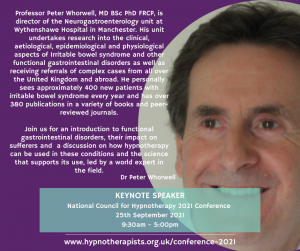 Living with an ongoing dodgy stomach? Irritable Bowel Syndrome (IBS) is an ongoing, chronic issue which can cause abdominal pain, bloating, cramping and discomfort. IBS is estimated to affect between 10 and 20% of the population in the UK with an average onset age in their mid 20s. Although it’s very uncomfortable, many people are reluctant to admit that they are suffering because of cultural taboos around talking about toilet habits.
Living with an ongoing dodgy stomach? Irritable Bowel Syndrome (IBS) is an ongoing, chronic issue which can cause abdominal pain, bloating, cramping and discomfort. IBS is estimated to affect between 10 and 20% of the population in the UK with an average onset age in their mid 20s. Although it’s very uncomfortable, many people are reluctant to admit that they are suffering because of cultural taboos around talking about toilet habits.
Because of this reluctance to share how uncomfortable and limiting the condition can be, there’s a public perfection that it’s relatively minor.
The National Council for Hypnotherapy (NCH) says IBS can be debilitating, preventing people from achieving simple tasks such as going shopping or enjoying long walks. It may also cause serious discomfort on a regular basis. Recently published research indicates that sensitive nerve endings in the gut can become inflamed for one reason or another, leading to ongoing hypersensitivity which causes people with gut related conditions to experience pain and discomfort. Gastrointestinal disorders are complex, and the causes are different for every patient. It’s important that if you experience sudden changes in your digestion and comfort levels that you see a GP and receive a diagnosis as these symptoms can be an indicator of serious illness.
Doctors currently don’t know the exact cause of IBS but it is known that it is exacerbated by levels of stress and anxiety. Research pioneered by Professor Whorwell, a gastroenterologist, shows that hypnotherapy can make significant contribution to the treatment of IBS. Professor Whorwell began investigating the application of hypnotherapy for management of IBS in the 1980s and his research shows that over 60% of IBS sufferers who undertake hypnotherapy see long term improvement, or complete disappearance of symptoms, often with no recurrence. However, the medical community has been slow to implement these research findings.
NHS guidelines allow doctors to refer IBS patients for hypnotherapy or other psychological therapies if medication is unsuccessful and the problem persists. Gut-directed hypnosis works by addressing a ‘miscommunication’ between the brain and gut. Using suggestion, relaxation and imagery techniques the client is guided into a focused state of awareness where they can learn skills which help calm and soothe their symptoms.
A growing number of NHS clinics now offer hypnotherapy for IBS and your GP can provide you with a referral or you can you can find a NCH-registered hypnotherapist near you by clicking here.
 Professor Peter Whorwell will be speaking at the 2021 National Council for Hypnotherapy’s Conference held on 25th September.
Professor Peter Whorwell will be speaking at the 2021 National Council for Hypnotherapy’s Conference held on 25th September.
For more information about the conference and Professor Whorwell’s talk please visit https://www.hypnotherapists.org.uk/conference-2021/
Photo by Daria Shevtsova from Pexels
